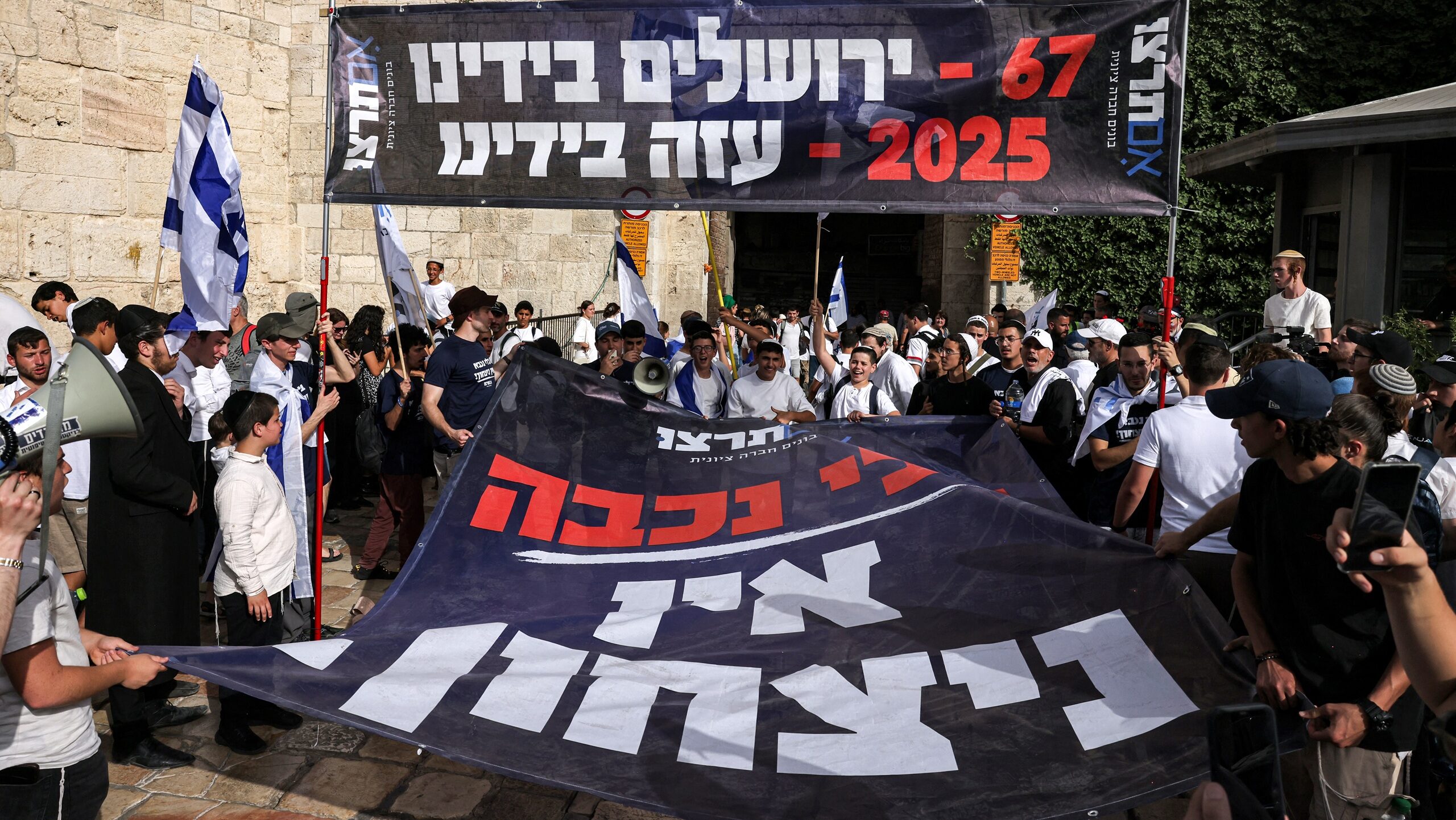Emirati Officials Protest ‘Provocative Practices’ in Jerusalem’s Old City
The United Arab Emirates summoned Israeli Ambassador Yossi Shelley on Wednesday to deliver a formal protest over what it described as “disgraceful and offensive violations” during Jerusalem Day events, including confrontations at Al-Aqsa Mosque and the Muslim Quarter of the Old City.
The Emirati Foreign Ministry issued a strong condemnation of the actions, calling them “provocative practices by Israeli extremists” and accusing Israel of allowing “dangerous incitement against Muslims” during the annual Flag March. The UAE urged Israel to “assume full responsibility, condemn these hostile acts, hold perpetrators accountable without exception to ministers and officials, and take urgent steps to prevent the exploitation of Jerusalem for agendas of violence, extremism, and incitement.”
Tens of thousands of Jewish nationalists marched through Jerusalem’s Old City on Monday, waving flags and chanting slogans. Clashes erupted at sites including Damascus Gate, where some marchers shouted “death to Arabs” and “may your village burn.” Video showed water bottles being thrown at Palestinian residents. Israel Police Commissioner Danny Levi, who visited the scene, later told reporters, “I didn’t hear any racist chants.”
Give the gift of hope
We practice what we preach:
accurate, fearless journalism. But we can't do it alone.
- On the ground in Gaza, Syria, Israel, Egypt, Pakistan, and more
- Our program trained more than 100 journalists
- Calling out fake news and reporting real facts
- On the ground in Gaza, Syria, Israel, Egypt, Pakistan, and more
- Our program trained more than 100 journalists
- Calling out fake news and reporting real facts
Join us.
Support The Media Line. Save democracy.


Other Flag March participants at Damascus Gate held a large banner reading, “If there’s no Nakba, there’s no victory”—a provocative reference to the 1948 mass displacement of Palestinians known as the Nakba, or “catastrophe.” In the context of the ongoing Israel-Hamas war in Gaza, the slogan echoed calls from some far-right Israeli figures for the mass removal of Palestinians from the enclave, a plan seemingly backed by US President Donald Trump during recent discussions with Israeli Prime Minister Benjamin Netanyahu. The message appeared to advocate a second Nakba as a condition for Israeli victory, aligning with extremist rhetoric that views the war as an opportunity to reshape Gaza’s demographics.
Another banner at the march read, “67—Jerusalem in our hands; 2025—Gaza in our hands.” The first part references the capture of East Jerusalem during the 1967 Six-Day War, which is celebrated on Jerusalem Day by many Israelis as the reunification of the city under Israeli control. By pairing that historical milestone with a projected Israeli conquest of Gaza in 2025, the banner suggested that the current military campaign could lead to permanent Israeli control over the territory—an idea strongly opposed by much of the international community and seen by Palestinians as a call for ethnic cleansing. The slogans reflected how some elements at the march used Jerusalem Day not only to celebrate past victories but to signal ambitions for Gaza’s future.
National Security Minister Itamar Ben-Gvir, known for his ultranationalist views, visited the Temple Mount during the event, marking his seventh visit to the site since joining Prime Minister Benjamin Netanyahu’s government in 2022. His presence and the participation of Religious Zionism MK Tzvi Sukkot, who raised an Israeli flag on the site, were seen by Abu Dhabi as deliberately inflammatory.
The Emirati statement reaffirmed its support for Jordan’s custodial role over Islamic holy sites and called for preserving the historical status quo, including the authority of the Jordanian-administered Jerusalem Islamic Waqf. This marks the first time the UAE has summoned Israel’s ambassador since diplomatic normalization in 2020, signaling growing tension between the countries.

